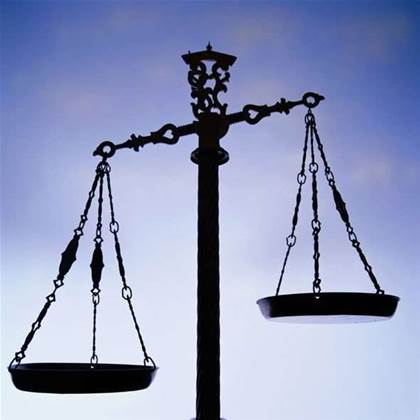Maurushat, an academic at the University of New South Wales' Cyberspace Law and Policy Centre, is firmly opposed to the Federal Government's proposed Internet Filtering scheme.

Her concerns are the lack of clarity around the aims of the trial and the legal ramifications of Internet Service Providers (ISPs) being appointed 'sheriffs' of the internet.
But any analysis of the filtering trials, she said, should take into account some other, potentially more challenging means by which our Internet experience is already censored.
"Filtering happens today," she said. "It is just not occurring en-masse like what is being proposed."
Censorship by self-regulation
First and foremost, our experience of the internet is already censored by the internet industry itself.
"Google and other search engines, without a shadow of a doubt, are already blocking content," Maurushat says.
"Google is in effect the Internet's policing agency. It does a lot of the functions soon to be expected of ISPs already."
Her assertion is confirmed by Rob Shilkin, communications manager at Google Australia.
"We remove results from our index only when required by law and in a small number of other instances, such as spam results or results including unauthorised credit card numbers," he said.
"Where feasible, we tell our users when we remove results, for example by forwarding DMCA notices to Chilling Effects for publication."
ISPs too, "conduct all kinds of censorship," according to Maurushat, "but we don't know the extent to which they are doing it."
Service providers need to follow Australian law on one hand, being "required to remove access to a locally-hosted site with expediency when material is deemed illegal," but also follow an industry code of conduct, which can sometimes present further challenges.
ISPs the world over tend to follow a code of conduct, Maurushat says, but "the effect of these codes on the law can be dubious.
As an ISP, you are not legally bound to self-regulation. But in some jurisdictions, not abiding by the code might risk your license not being renewed."
This form of censorship can potentially result in less accountable outcomes than a legislated form of filtering, she says.
"At least legislation is transparent," she says. "In Canada and the United Kingdom, internet filtering is not legislated but there have been initiatives from the ISPs themselves to get together and filter the internet behind the scenes."
ISP's generally "do not want to perform" policing functions, she says, which suggests this kind of self-regulation is politically motivated.
"This filtering was politically coursed. The politicians told the industry in no uncertain terms that if they didn't do something now, we'll regulate and it won't be pretty for you."
Self-regulated or not, Maurushat says it is inappropriate for a commercial organisation such as an ISP to be charged with a censorship role.
It both abdicates the responsibility of the State to the ISP, and allows the State to "externalise" the cost and discretion of policing to the private sphere.
Read on to page two for cases and discussion of commercial firms as censors.
Censorship by litigation
A far more insidious form of censorship is when the commercial sector itself becomes a censor.
While there are few examples of such events in Australia, overseas several private sector organisations have managed to force content offline using the courts.
An oft-cited example was filed back as far as 2000, when two interest groups fighting anti-semitism (The League against Racism and Anti-Semitism and the Jewish Students Union of France) successfully brought a case against Yahoo! which forced the internet company to remove any Nazi-related material (memorabilia or documentation) from its servers to avoid fines of 100,000 francs per day.
In 2007, the state owned Turk Telecom successfully managed to ban access to Google's video-sharing service YouTube in a Turkish court over a series of videos that were deemed critical of the nation's founder, Mustafa Kemal Ataturk.
No human rights safeguards
The real danger posed by any form of filtering, be it legislated or not, is that Australia has no bill of rights protecting free speech, Maurushat said.
"The big disadvantage is that Australian legislation is not subject to human rights safeguards," she said. "With a bill of rights, should a Government over-step their boundaries and impede human rights, the bill can be struck down and the politicians have to go back to the table.
"With a bill of rights, absurd legislation can be found to be unconstitutional. If the Government wanted to ban hate speech and child sexual abuse material, it might still be able to. But if it wanted to ban basic adult consented pornography, abortion or gambling sites, it could be challenged and struck down as unconstitutional."
Without a bill of rights, Australia is "far more susceptible to political malleability," she said.
Australia is the only country in the world, she said, where the Internet is excluded from wire-tapping.
"There is nothing in Australia other than our good judgement in whom we elect to prevent us from becoming the world's ultimate surveillance society."
Australians mistakenly feel protected by the constitution, she said.
"Fair dinkum is a cultural notion, not a legal one."


_(20).jpg&h=140&w=231&c=1&s=0)


_(28).jpg&h=140&w=231&c=1&s=0)



_(26).jpg&w=100&c=1&s=0)

 iTnews Executive Retreat - Security Leaders Edition
iTnews Executive Retreat - Security Leaders Edition












_(1).jpg&h=140&w=231&c=1&s=0)



